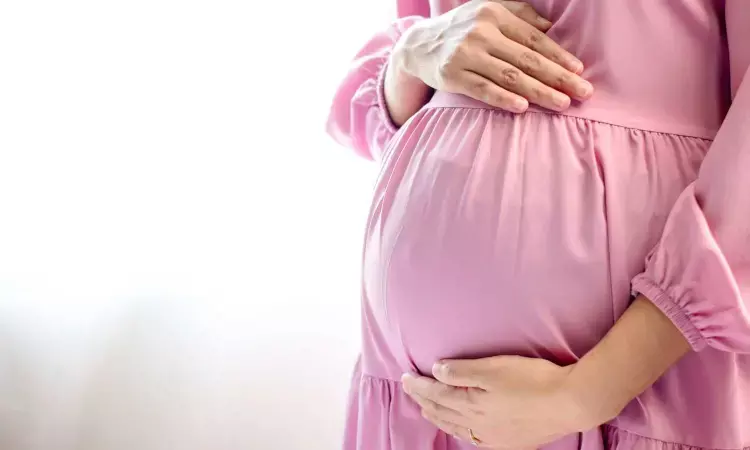- Home
- Medical news & Guidelines
- Anesthesiology
- Cardiology and CTVS
- Critical Care
- Dentistry
- Dermatology
- Diabetes and Endocrinology
- ENT
- Gastroenterology
- Medicine
- Nephrology
- Neurology
- Obstretics-Gynaecology
- Oncology
- Ophthalmology
- Orthopaedics
- Pediatrics-Neonatology
- Psychiatry
- Pulmonology
- Radiology
- Surgery
- Urology
- Laboratory Medicine
- Diet
- Nursing
- Paramedical
- Physiotherapy
- Health news
- Fact Check
- Bone Health Fact Check
- Brain Health Fact Check
- Cancer Related Fact Check
- Child Care Fact Check
- Dental and oral health fact check
- Diabetes and metabolic health fact check
- Diet and Nutrition Fact Check
- Eye and ENT Care Fact Check
- Fitness fact check
- Gut health fact check
- Heart health fact check
- Kidney health fact check
- Medical education fact check
- Men's health fact check
- Respiratory fact check
- Skin and hair care fact check
- Vaccine and Immunization fact check
- Women's health fact check
- AYUSH
- State News
- Andaman and Nicobar Islands
- Andhra Pradesh
- Arunachal Pradesh
- Assam
- Bihar
- Chandigarh
- Chattisgarh
- Dadra and Nagar Haveli
- Daman and Diu
- Delhi
- Goa
- Gujarat
- Haryana
- Himachal Pradesh
- Jammu & Kashmir
- Jharkhand
- Karnataka
- Kerala
- Ladakh
- Lakshadweep
- Madhya Pradesh
- Maharashtra
- Manipur
- Meghalaya
- Mizoram
- Nagaland
- Odisha
- Puducherry
- Punjab
- Rajasthan
- Sikkim
- Tamil Nadu
- Telangana
- Tripura
- Uttar Pradesh
- Uttrakhand
- West Bengal
- Medical Education
- Industry
Intrauterine cannabis exposure tied to adverse birth outcomes

Canada: A recent study in Addiction revealed an association between prenatal cannabis use and lower birth weight, neonatal ICU (NICU) admission in newborns, and preterm births. However, cannabis-exposed infants are not at greater risk of birth defects or death within one year, including sudden unexpected infant death.
"There is little evidence that prenatal cannabis exposure adversely affects cognitive or behavioural outcomes in early childhood, with the exception of attention and externalizing problems," the researchers wrote in their study.
First author Ms. Maryam Sorkhou comments, “The global increase in cannabis use among women of reproductive age also extends to pregnant women. We know that THC, the main psychoactive constituent in cannabis, can cross the placenta from mother to fetus and bind to receptors in the fetal brain.
Our study adds to that knowledge by showing that prenatal exposure to cannabis heightens the risk of several adverse birth outcomes.”
This meta-analysis (a synthesis of past studies) pooled the results of 57 prior studies with a total of 12,901,376 infant participants, 102,835 of them exposed to cannabis.
Twenty of the studies measured the association between intrauterine cannabis exposure and risk of preterm delivery. In these, the combined results show that mothers using cannabis were over one and a half times more likely to have a preterm delivery compared with mothers not using cannabis during pregnancy.
Eighteen of the studies measured the risk of low birth weight. In these, the combined results show that mothers using cannabis during pregnancy were more than twice as likely to have a low-birth-weight baby compared with mothers not using cannabis during pregnancy.
Ten of the studies measured the risk of requiring NICU admission. In these, the combined results show that newborns with intrauterine cannabis exposure were more than twice as likely to require NICU admission than nonexposed newborns.
The studies included in this meta-analysis were published between 1984 and 2023 in a broad range of countries.
References: Maryam Sorkhou, Daisy R. Singla, David J. Castle, Tony P. George First published: 15 November 2023 https://doi.org/10.1111/add.16370
Dr Kamal Kant Kohli-MBBS, DTCD- a chest specialist with more than 30 years of practice and a flair for writing clinical articles, Dr Kamal Kant Kohli joined Medical Dialogues as a Chief Editor of Medical News. Besides writing articles, as an editor, he proofreads and verifies all the medical content published on Medical Dialogues including those coming from journals, studies,medical conferences,guidelines etc. Email: drkohli@medicaldialogues.in. Contact no. 011-43720751


